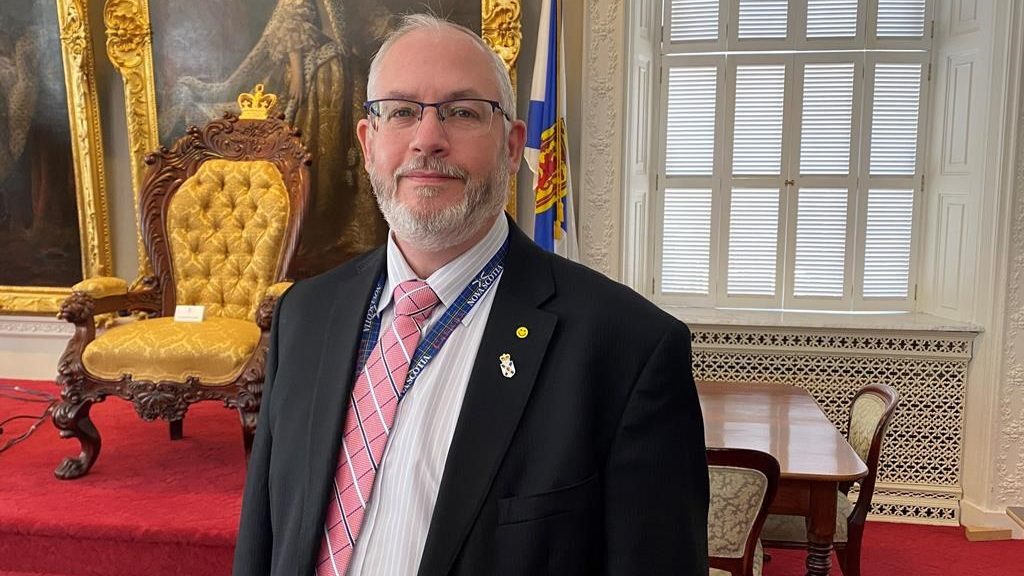‘Perfect storm of viruses’ leading to ‘historic’ surge in patients at IWK
Posted Nov 17, 2022 07:39:00 PM.
Nova Scotians are being asked to do their part to help reduce the spread of respiratory viruses.
This as our health care system is stretched thin as it responds to an early start to a respiratory illness season that is having a big impact on our youngest residents.
“As in the rest of Canada, our COVID activity is actually quite low and it continues to decline, and there are high levels of immunity against COVID,” Chief Medical Officer of Health Dr. Robert Strang told reporters Thursday.
“We are however seeing the beginning of influenza season, with much of it in children, and it is about six to eight weeks earlier than usual,” he explained. “And we also have a lot of Respiratory Syncytial Virus or RSV, and again that's mostly impacting young children.”
Dr. Andrew Lynk, chief of pediatrics at the IWK, is calling it a “perfect storm of viruses,” and he said hospitals across the province are already seeing a surge in demand for acute care services for children.
According to Lynk, at the IWK's emergency department, 120 to 140 patients in a 24-hour period would be considered a very busy day, but lately those numbers have consistently been 150 to 180, at times even reaching 200 visitors.
“These are at historic levels that I've never seen before in my career here since 1990 as a young pediatrician,” Lynk stated.
“Parents are having to wait hours and hours and hours and hours, unless your child is extremely sick, and that causes frustration and moral distress for everybody involved.”
He said getting your child vaccinated for influenza and COVID is an easy way to help make sure they avoid the worst outcomes if they get one of those respiratory viruses.
He said the viruses usually make their way across the country from west to east so we can look to other provinces to give us an idea of what to expect here.
“Based on what's happening now in Ontario and Quebec, they've got the full force of influenza on them,” Lynk explained. “We're just starting to see that in the last week or so here, so it's going to get worse before it gets better.”
Staffing issues in the health care sector are compounding the problem, along with a shortage of children's pain and fever medication.
Lynk said there may be some parents resorting to taking their children to the emergency room for problems they could handle at home if they had access to children's Tylenol or Advil. He said there's a plan in the works to import those products from other locations.
“Parents, if your child is sick, especially if they're babies, or they have underlying problems, if they have high fevers, trouble breathing, they can't keep fluids down, they're really tired and you're just worried about them, bring them in and we'll do our best to look after them in a timely fashion,” Lynk stated.
“If they've had a sore knee for a couple weeks or other things like that, don't use the emergency rooms for primary care right now for chronic problems. It's not the time to come.”
Both Lynk and Strang are calling on all Nova Scotians to implement the tools we learned during COVID to help stop the spread of these viruses.
That means getting vaccinated if we can, frequently washing our hands and staying home if we're sick even with mild symptoms.
“And I'm asking others, such as employers to support this as much as possible, with opportunities for virtual work, paid sick or family illness leave and other considerations,” Strang said.
“And also I need to ask employers, please stop asking people for sick notes. This is an unnecessary pressure on the health care system.”
Public health officials continue to ask Nova Scotians to wear masks around others, especially if they are unwell or feeling a little off.
“If you are sick with a cold or flu-like symptoms, even if very mild, and can not stay home for whatever reason, you need to wear a mask,” Strang stated.
“Or maybe you have been sick and you're recovering and feeling better, please when you're out and about, you need to wear a mask.”
However, Strang said don't expect them to be mandated any time soon.
“Mask mandates were used at a specific time during the pandemic when there were high levels of circulating virus and a population which was very susceptible to disease. That is no longer the case,” the top doctor explained.
“For mask mandates to be effective, there needs to be widespread public buy-in and we no longer have that in Nova Scotia and across Canada.”
Strang added, much of the respiratory virus spread is happening in settings where masks can't be mandated, like gatherings at homes.
However, he said his team will continue to monitor the situation, and “we would certainly change our position [on mask mandates] if we felt it was necessary.”










